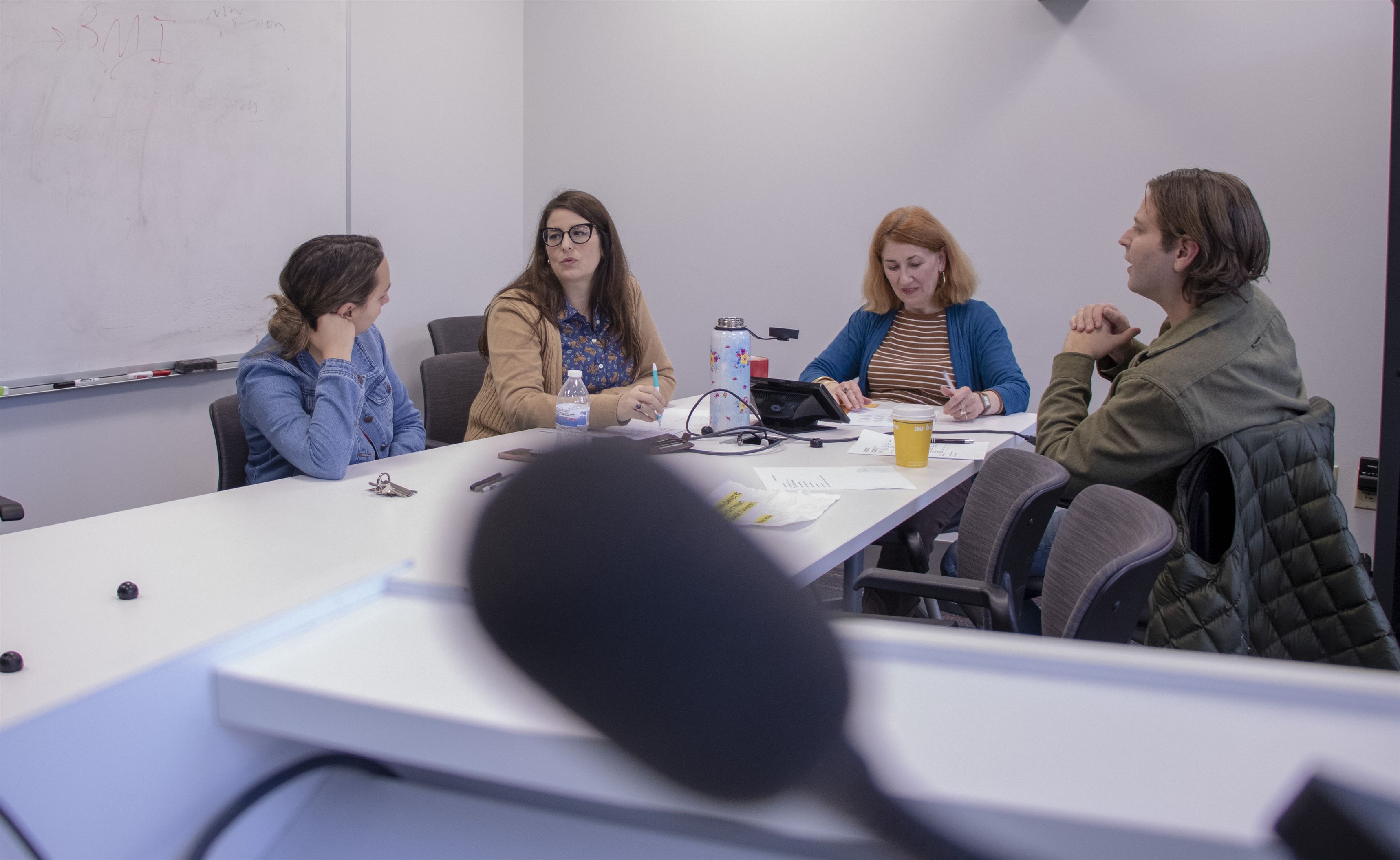The Dannis B. Eaton Speech Competition will be held on Monday Nov. 18 from 6 p.m. to 7:30 p.m. in the Presentation Hall of the School of Communication and Media (SCM).
This years topic is titled “My Earth,” a theme that compliments SCM’s ongoing #FocusClimateChange project which aims to create and disseminate climate-change-related media.
The finalists participating in this event are Carley Campbell, Sam Carliner, Francis Churchill, Giovanna Da Silva Pagungue and Kenny Slaman.
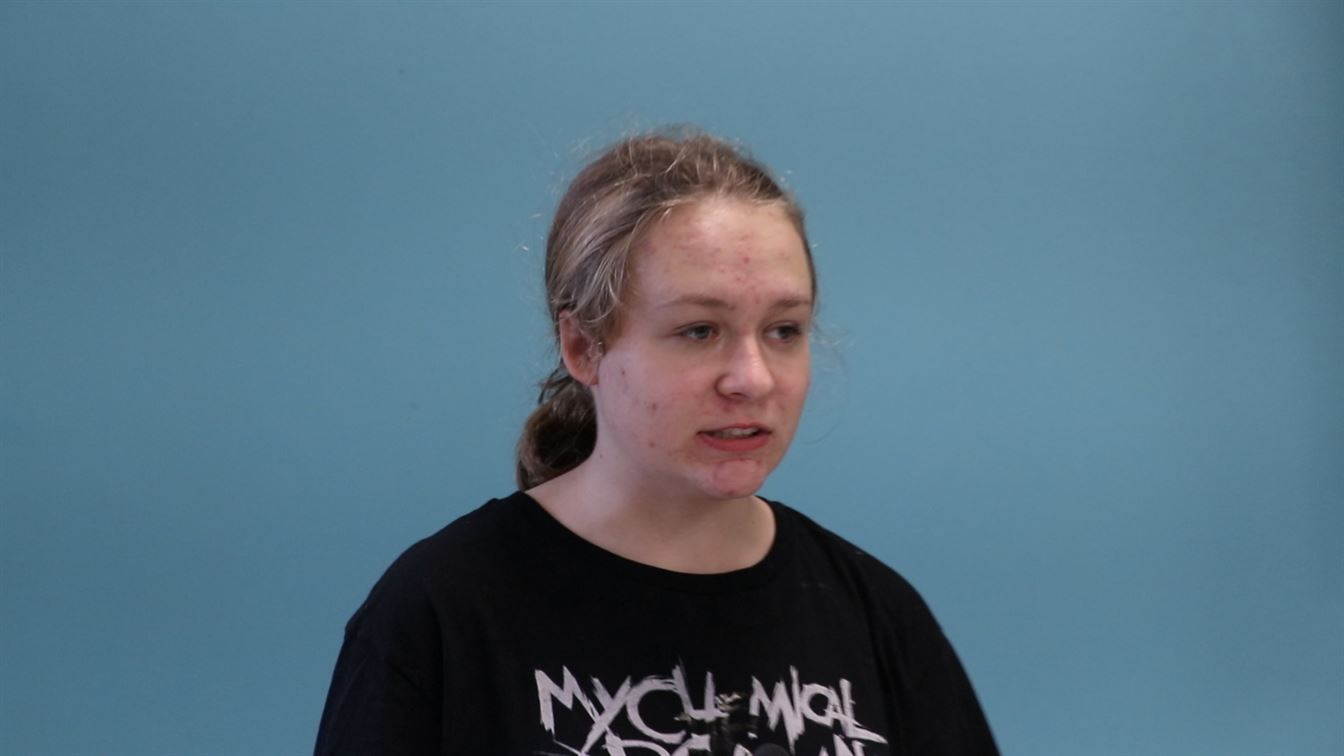
Carley Campbell will present a speech about the negative impact on our environment caused by big business. Kristoffer Fernandes | The Montclarion
Carley Campbell is a freshmen journalism major and her speech is titled “Corporations and Consumers.”
Campbell’s personal statement had to do with how corporations are a major fact to carbon emissions.
“Seventy percent of the pollution comes from only a small amount of corporations. Big names like Amazon, with their one day shipping, cause more carbon emissions. Coca-Cola pollutes water in India and groups like Nestle take away resources and water from communities that need it most,” Campbell said. “Corporations need to step up and obviously accept their faults with this. It’s time, we the consumer, address this through feedback. We need to confront our corporations and we need to make sure our voices are heard.”
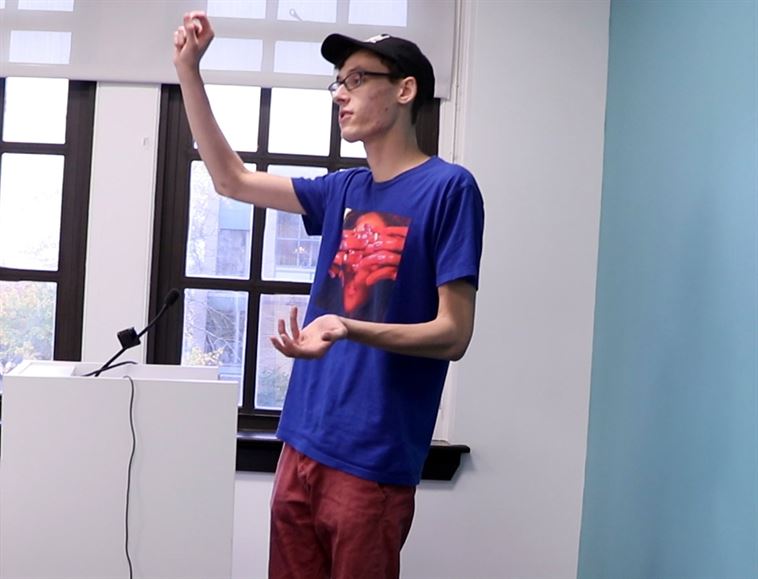
Sam Carliner is focusing on why our society feels they own the earth, and how this mindset is harmful. Kristoffer Fernandes | The Montclarion
Sam Carliner is a senior journalism major and his speech is titled “My Earth isn’t My Earth.”
“The whole reason that it’s titled ‘My Earth’ [is] because, to me, I think it’s just an inherently weird thing to have something as big as Earth and put a possessive in front of it, like “my,” and to not question that,” Carliner said. “I think that’s such a fabric of our society that we act as [if it’s] a normal thing; this idea that we can have the Earth, that it belongs to us and it doesn’t rub us the wrong way to think of that.”
Carliner mentioned in his personal statement that he wants to break the norm of owning the Earth.
“I would really like to counter this normalization of treating land as something to be owned by people, and bought and sold by people, and really paint the idea that maybe we could have a world where land is seen as a public good instead of a product,” Carliner said.
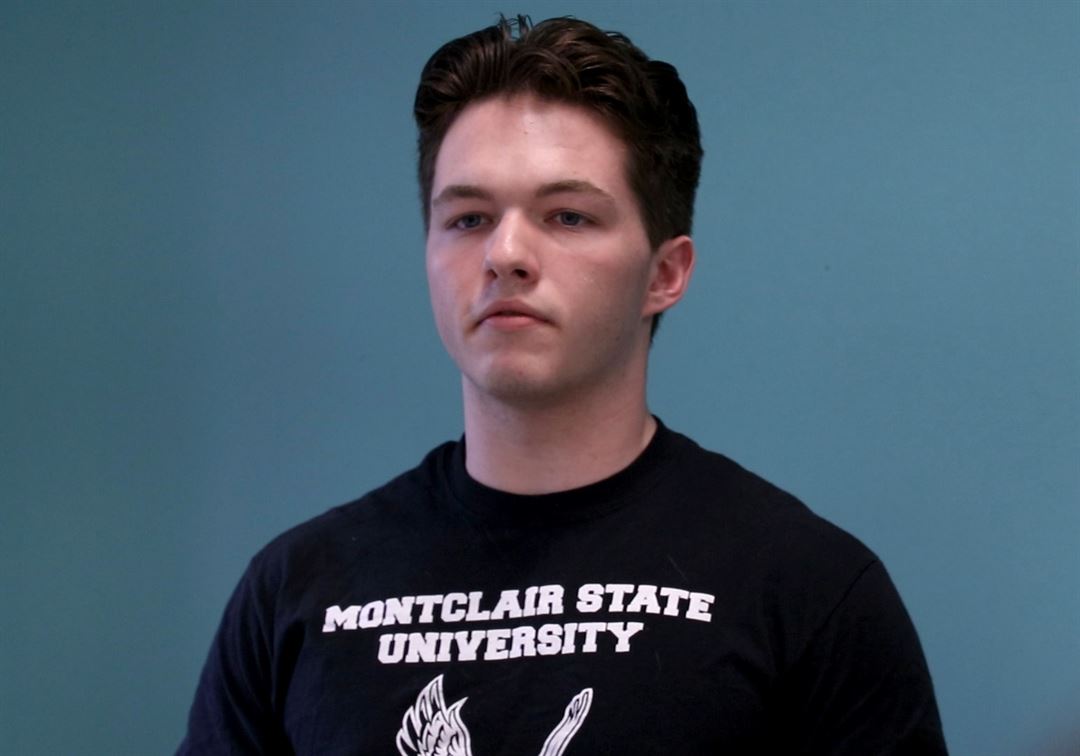
Francis Churchill will talk about the way that we are inadvertently hurting ourselves through environmental destruction. Kristoffer Fernandes | The Montclarion
Francis Churchill is a freshman communication and media arts major and his speech is titled “Man Made Self Destruction.”
“The main danger that climate change possess now is that the [Intergovernmental Panel on Climate Change] (IPCC) 2018 report found that 4% of vegetables and 8% of plants are in danger of losing their climatic range and then they can’t be consumed at the rate they are now by the people that need to consume them,” Churchill said.
Churchill went on in his personal statement to discuss how this will affect people in the long-run.
“There will be less storage and less carbohydrates in people’s systems, meaning that they won’t have any energy to function as often as they would,” Churchill said. “They are not [going to] be as energetic, and they won’t have enough energy for the brain that they would normally have due to the potential rise of 1.5 degrees celsius that the IPCC found.”
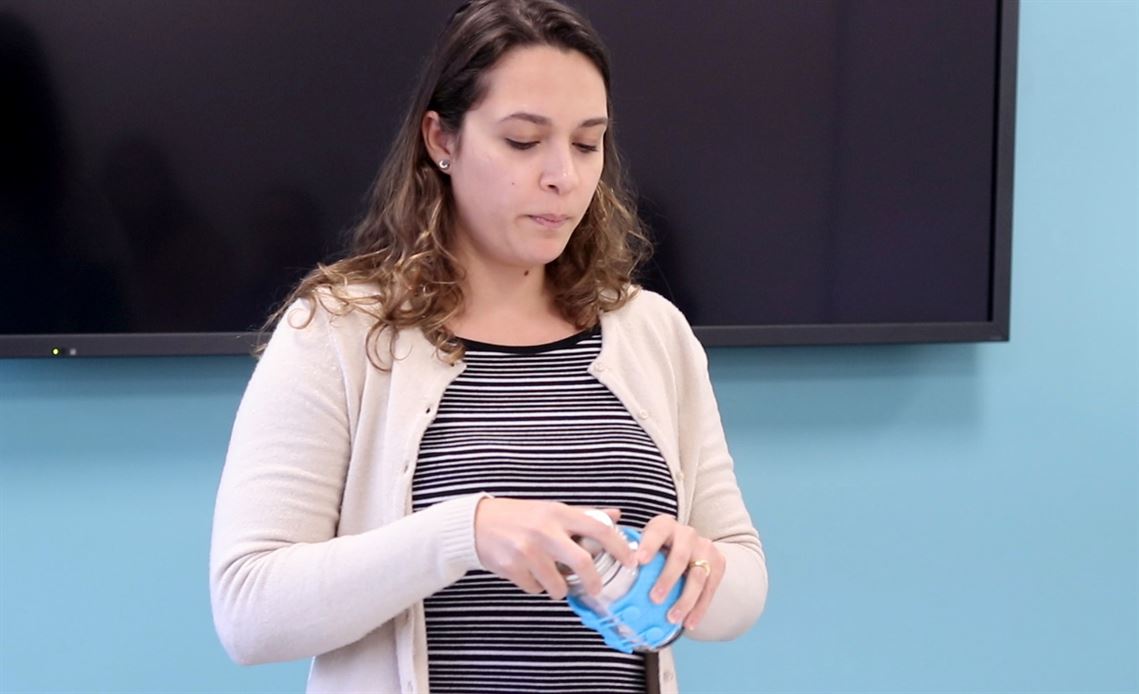
Giovanna Da Silva Pangungue will explain how we can implement small changes as a community that make a positive impact on the environment. Kristoffer Fernandes | The Montclarion
Giovanna Da Silva Pagungue is a junior psychology major and her speech is titled “Trash Talk.”
Da Silva Pagungue started off her personal statement by discussing her own principles on helping the planet.
“Reduce, reuse, refuse, recycle and rot are the five principles of the ‘zero waste lifestyle’ that help me cut down my trash output by 75%,” Da Silva Pangungue said. “College students produce 640 pounds of trash every year and that means by the time we graduate we will leave a legacy of 1.3 tons of waste for the students coming after us.”
Da Silva Pagungue explained in her personal statement how individuals can start reducing waste in their lives.
“I want to offer an alternative, which are practical steps to follow these five principles and revert our negative impact on future generations: you can refuse what you don’t need, reduce what you consume, reuse what you already have, recycle what you can and rot the rest. My bottom line with this is we can create a huge impact if we just care enough.”
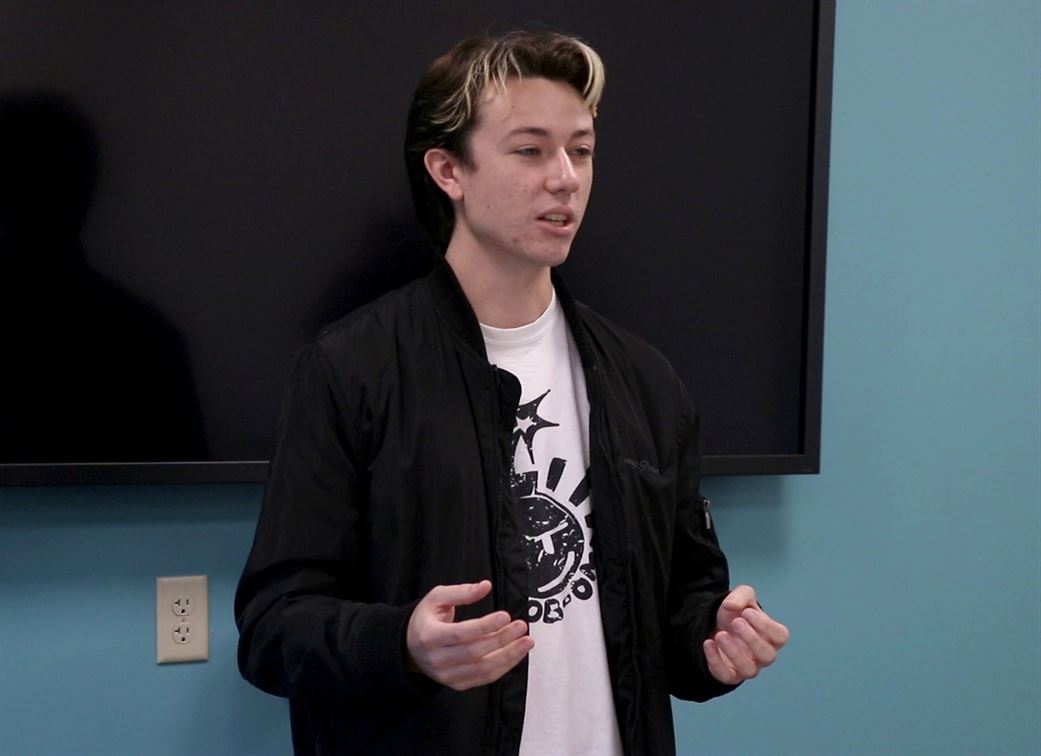
Kenny Slamen will tackle the importance of taking a political stand to support the environment through voting. Kristoffer Fernandes | The Montclarion
Kenny Slaman is a sophomore humanities major with a film minor and his speech is titled “Don’t ‘Go Green,’ Vote Green.”
“The amount of difference that one person makes is so much smaller than the amount of damage that these major corporations do on a daily basis. For that reason I think that the most significant thing you can do to combat climate change is to vote,” Slaman said.
Slaman shared why voting is so important when it comes to climate change.
“Vote for somebody who is going to institute these progressive policies to inhibit the ability of corporations to take advantage of the environment for their own personal profit. Vote for somebody who will protect the people and care about the world we are going to live in,” Slaman said.

